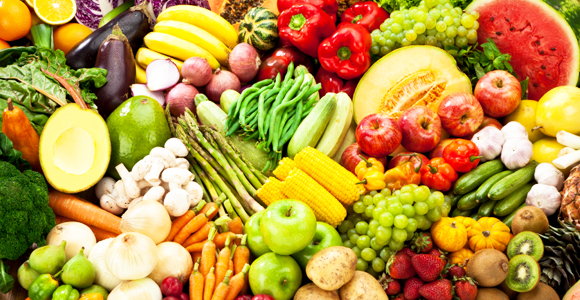Veganism is trendy and its proponents are constantly singing its praises--especially celebrities. But is it really as healthy as some claim? And more importantly, is it safe?
The Academy of Nutrition and Dietetics says that:
...[A]ppropriately planned vegetarian diets, including total vegetarian or vegan diets, are healthful, nutritionally adequate, and may provide health benefits in the prevention and treatment of certain diseases. Well-planned vegetarian diets are appropriate for individuals during all stages of the life cycle, including pregnancy, lactation, infancy, childhood, and adolescence, and for athletes.The catch is that vegan diets can be healthy if they are well-planned, but they aren't inherently healthy by default. Translation: you have to do your homework before you take on the vegan lifestyle in order to ensure your diet is well-balanced and you're getting all of the nutrients you need.
As a vegan diet is completely free of meat, poultry, eggs, and dairy products, if you don't do your research, you might not be getting enough vital nutrients. Some vegan diets, if not appropriately planned, could be lacking in protein, calcium, vitamin D, vitamin B12, zinc, iron and omega-3 fatty acids.
In order to prevent falling short on these important nutrients, take these steps to ensure your vegan diet is healthy:
- Be sure to include a variety of high-protein plant foods, including tofu, beans, nut, seeds and whole grains. Try quinoa, a complete protein.
- Because dairy is a main source of calcium, you'll have to incorporate a range of plant-based sources of calcium. Including dark leafy green veggies, almonds, and soy products will provide some calcium, but you'll likely need to add calcium-fortified foods (non-dairy milks or orange juice) or take a calcium supplement, preferably one that includes vitamin D.
- Try to get your vitamin D the natural way--from the sun. However, you don't need to bake all day to get your daily dose. About 30 minutes of sun exposure will allow your body to produce the sunshine vitamin. Additionally, fortified foods and supplements help fill in the gaps.
- Take a vitamin B12 supplement or include plenty of fortified foods because this vitamin is only found in animal foods.
- Aim to include adequate amounts of healthy fats from healthy oils, nuts, seeds, avocados, and olives.
- Incorporate beans, green leafy vegetables, and fortified dairy substitutes to ensure adequate iron intake.
Kari Hartel, RD, LD is a Registered Dietitian and freelance
writer based out of St. Louis, MO. Kari is passionate about nutrition
education and the prevention of chronic disease through a healthy diet
and active lifestyle. Kari holds a Bachelor of Science in Dietetics from
Southeast Missouri State University and is committed to helping people
lead healthy lives. She completed a yearlong dietetic internship at OSF
St. Francis Medical Center in Peoria, IL, where she worked with a
multitude of clients and patients with complicated diagnoses. She
planned, marketed, and implemented nutrition education programs and
cooking demonstrations for the general public as well as for special
populations, including patients with cancer, heart disease, diabetes,
Alzheimer's disease, obesity, and school-aged children. Contact Kari at [email protected].



